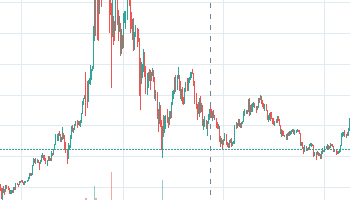The mere mention of terms such as Bitcoin, cryptocurrency or blockchain usually arouses a series of emotions and preconceived notions in the population that do not yet understand it. Although apprehension, doubt, and misconceptions surround cryptocurrencies in general, and bitcoin in particular at the moment, there is no doubt about the fact that in some form or another, they are the next step in monetary evolution.
In recognition of this fact, and also due to the extremely profitable market surrounding cryptocurrency, major M.B.A. online and offline programmes have started to incorporate cryptocurrency courses with more useful and practically applicable lessons than before. Some have even gone to the lengths of making blockchain and cryptocurrency the prime focus of their entire program in Asia.
The Adoption of Cryptocurrency in Mainstream Business Schools
The phenomenon is not particularly limited to the UK and US only, but as would be expected, that’s where most of the mainstream business schools have adopted cryptocurrency lessons in their MBA programmes more extensively. They are not quite at the level of South Korean business schools though, as we will discuss a bit later on.
Back in 2018, it was seen that the University of Pennsylvania and Georgetown, alongside Stanford had increased and beefed up their cryptocurrency lessons by adding more classes and more detailed chapters involving blockchain technology. It was both a result of widespread recognition of the importance of cryptocurrency by the faculty, as well as a means for meeting demands from the students themselves.
Recruiter Encouragement Played a Major Role
A prime reason why the mainstream MBA colleges are so popular in the first place is because, on completion of their courses, the students are extremely likely to be picked up from campus by major recruiters connected with the universities.
Therefore, when those same consultancies began contacting the universities, quite literally stating that the new batch of MBA students need to possess a greater knowledge of blockchain technology and cryptocurrency, the move was inevitable. If there’s a market demand for knowledge in a specific field, which is being confirmed by the biggest players in the industry, it would make no sense for any top MBA college to ignore it, which is why they didn’t! It remains to be seen when more MBA colleges take similar steps. At this time though, the question really is when, not if.
MBA Online: What Can be Expected?
The top online MBA courses have gained a lot of popularity recently, especially since top UK universities such as Aston University Online have now started their own M.B.A. online courses. All their MBA online programmes come with international accreditations from not just AACSB, but AMBA and Equis as well. The M.B.A. online programme by Aston University holds number 12 position globally in 2019, with a student satisfaction rate of 91%.
The number of online MBA courses available these days are quite overwhelming, but that has more pros than cons for fulltime working professionals. A negative effect of having so many choices in front of the candidate is that they may end up making a mistake by choosing a course without the proper accreditations necessary for it to be valid.
If one can stick to the accredited and well-reputed universities though, the flexibility it offers to full-time employees, the reduced expenses, and the convenience of completing higher education while gaining work experience simultaneously are just some of the main advantages the online MBA programme has over traditional, full-time courses on campus.
Now, the question here is, how well are online MBA programmes equipped to incorporate crypto classes in their curriculum?
Surprisingly enough for those that are not aware, the online education industry is extremely well equipped to handle advanced classes in cryptocurrency, because even before the more traditional business schools started to realise the need of teaching their students about cryptocurrency, there were a whole range of online courses (not just MBA) that had recognised the importance and, therefore, teaching their students already to be adept in blockchain technology for quite some time now.
With all of these advantages, imbued with the recently included cryptocurrency concentrations, it would not be an exaggeration to state that just like blockchain technology, online MBA courses are likely going to be the future for MBA programmes in general.
It may take a few more decades, but the wisdom of saving time, money, effort and getting more productivity out of their employees could very well lead decision-makers of the world’s leading corporate houses to insist that their employees complete their MBAs over the internet.
The Vision for the Future
Be it online or offline universities, the vision for the future is the most important aspect to be considered here. The adoption of blockchain education in the curriculum of the leading business schools of the world only shows why they are indeed the leaders.
The faculty and the students themselves have foresight which is lacking right now in most of the competition, but in the near future, it will all change. It would, in fact, be a winning bet if someone were to put money on the prediction right now that every online and offline business management course will start including sincere blockchain education within the curriculum, in just five years’ time from now, if not much sooner. Quite a bit depends on government policies as well, of course, but that too is something which will change inevitably.
It’s the vision of the leaders that sets them apart and puts them ahead of the rest, which is the prime reason why most traditional business schools have yet to realise or incorporate the necessary blockchain education in their programmes, while top UK universities and their US counterparts such as Stanford and Wharton have started developing advanced courses already.
The Demand is Not Limited to Just a Few Sectors
A common misconception is that blockchain has exclusive use in only venture capital and businesses connected directly or indirectly to cryptocurrency. While these are in constant need of professionals with the right knowledge, of course, they are not the only ones, not by far!
Interviews with key personnel in the top business schools in both the US and the UK have revealed that there is demand for blockchain knowledge and experience in various other sectors as well, especially in Wall Street and much to a lot of people’s surprise, even the government.
Why Blockchain Education will Lead to International Acceptance of Cryptocurrency
We fear what we do not understand, which is a relatable instinct embedded in human psychology. Through education and awareness, that can be countered, as we have countered so many things before to reach where we are today. Blockchain and cryptocurrency are facing a similar issue right now and the solution lies once again in education and awareness.
The prime reason why there are so many limitations on Bitcoin and other cryptocurrencies across various regions of the world is that the government in most of these locations do not understand it. Most politicians are not expected to understand much about anything really, but they are directed by people who do, and when there aren’t sufficient people present in the government who can understand blockchain technology, cryptocurrency and the future of it all, apprehension and a tendency to fear its impact on the economy is only natural.
On the other hand, the tremendous potential of blockchain technology is becoming more and more obvious with each passing day and no modern nation can ignore it completely, which is the reason why there is an international demand for professionals with the appropriate blockchain education in the government as well. It could ultimately be the most important factor in the worldwide acceptance of Bitcoin and other cryptocurrencies.
Why MBA and Blockchain Education are Made for Each Other
If one looks back towards the past and glances through the major developments in the progress of human civilisation, it is impossible to not notice what an incredible impact business has had on it.
Creative genius is at the core of any ground-breaking invention, but the truth is, unless there’s a business around it, it is not viable at all. Sometimes, that is a truth which is hard to accept, but it is still the truth nevertheless.
To illustrate this fact, let us take the example of Steve Jobs, who was widely acclaimed as one of the most brilliant minds of all time, but how many people realised that he was not the one to invent anything in terms of the actual iPhones, iPads, MacBooks, and iPods that securely placed Apple as the world’s richest company?
There were a number of people at Apple who did it as a team, and some inventions that they perfected were actually invented a long time ago but weren’t patented yet. Does it mean that Steve Jobs did nothing? Absolutely not, because his genius in marketing and business was what kept the core-level genius of his team from getting lost in obscurity. Sure, the core team should have received more attention than what they got, but the truth is that without Steve Jobs and his business strategies, all their inventions wouldn’t have amounted to much.
This is precisely the reason why the MBA programme and blockchain education are so perfect for each other. It combines core-level knowledge and education with the business-oriented nature of the degree course.
As more and more MBA graduates become sincerely aware of blockchain technology and its various applications across different sectors, they will be able to use their knowledge and shrewd understanding of the industry to create valid and sustainable business models around them. Entrepreneurs can provide a place for the brilliant minds in the field to work under their business models so that their genius finds a way to gain recognition, while the business profits along with the recognition.
South Korean Business Schools are Dedicating Entire MBA Programmes to Cryptocurrencies
South Korea is widely considered to be a hub for the latest technological innovations and it’s also one of the nations outside of the western world that is most interested in cryptocurrency and blockchain applications.
Even though the government is still not comfortable with ICOs in particular, the regulatory efforts are ongoing and they have not shut their doors to traditional cryptocurrencies such as bitcoin or ether at all.
If someone has any doubt about South Korea’s interest in blockchain, they only need to take a look at the dedicated Crypto MBA programmes they have, which is now quite popular in the country among both students and companies associated with the crypto trade in particular.
The Seoul School of Integrated Sciences and Technologies (ASSIST) started offering the country’s first crypto MBA course, which they announced last year in December. Some of the main subjects that are included in the Master’s degree are crypto economics, crypto funds, Dapp planning, game theory, smart contracts, Ethereum and, of course, Bitcoin.
In many ways, one can even say that perhaps the Seoul School of Integrated Sciences and Technologies has more foresight than most major colleges around the world because it was, at that time, the only course of its kind, and it still is. It is to be noted that ASSIST is the leading MBA school in South Korea as well.
In light of everything we just discussed, if there was any doubt about the widespread use of blockchain technology right now and in the future, these are more than enough to clear any doubts of the sort.
Be it in South Korea, the UK, or the US, if there was not a significant and growing demand for knowledge in cryptocurrency and blockchain, the top business colleges of the world wouldn’t be starting to incorporate lessons on these subjects within their core programmes. The recognition of blockchain and crypto by the best educational faculties of the world is a sign that whether everyone in the present accepts it or not, it is going to play a major role in the coming decades for sure.


 Updated every 10 minutes
Updated every 10 minutes


